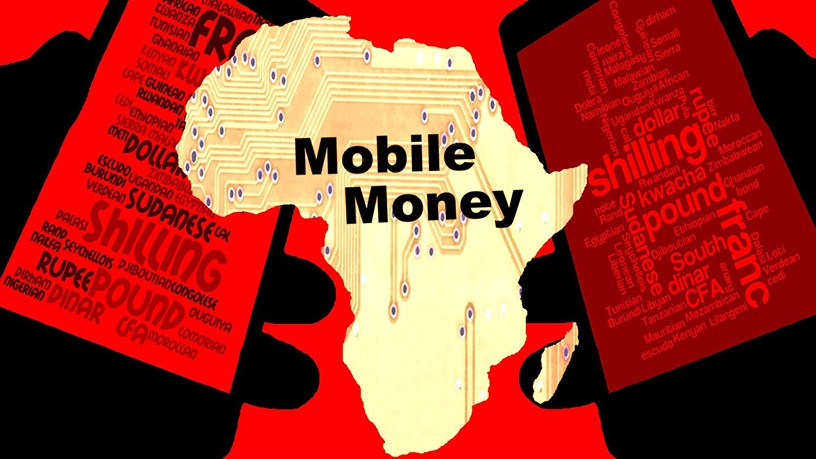Africa must react or risk losing huge mobile money opportunity

Globally, as well as in Africa and South Africa, the payments industry suffered a much-smaller-than-anticipated impact from the COVID-19 crisis and has returned to growth with renewed momentum, according to a new report, titled Global Payments 2021: All In for Growth, by Boston Consulting Group (BCG).
This 19th annual analysis by BCG of the global payments industry reports that the sector responded quickly to challenges posed by the pandemic, from e-commerce adoption to accelerating cash-to-noncash conversion.
Global payments revenues declined by only 2.5% from 2019 to 2020, to US$1.5-trillion, and they could reach US$2.9-trillion by 2030.
BCG’s five-year outlook suggests that global payments revenues will expand by a healthy 7.3% from 2020 to 2025. All regions are likely to see strong growth over the next five years, with the Middle East and Africa expected to enjoy a compound annual growth rate (CAGR) of 6.9% from 2020 to 2025. This follows closely behind the global leader, Asia-Pacific, which is expected to have a CAGR of 8.8%.
“This growth forecast makes the Middle East and Africa one of the world’s strongest frontiers for payments. This is a huge region, however, with very different market characteristics from one sub-region to another – and despite challenges around less developed banking infrastructure in Sub-Saharan Africa as a whole, we believe that Africa is poised to see significant payments growth,” says Tijsbert Creemers, Managing Director and Partner at Boston Consulting Group, Johannesburg, and co-author of the report.
Harnessing a rich digital payments ecosystem
In Africa, this growth has been and will continue to be augmented by high mobile penetration driving digital ecosystems and platform solutions.
Like payments front-runners China and India, the continent’s explosive digital payments evolution will be driven by local dynamics that include strong consumer interest in using mobile money and low card and banking penetration, BCG states.
The business strategy and tech solutions consultancy says South Africa is a mature market in terms of payments infrastructure. Most major banks in the country have enabled digital wallets such as Apple Pay and Samsung Pay, and the country’s retail real-time payments system is expected to launch in 2022.
In countries like Kenya, Ghana, Uganda, and Côte d’Ivoire, mobile wallets and money have already largely displaced cash – which is costly and dangerous to carry – and opened access to financial services products, driving financial inclusion in a region where this has traditionally been a challenge.
“With the right strategies in place and ongoing investment in creating a rich customer experience that meets customer needs, mobile payments players in Africa should continue to see strong growth in this highly competitive space,” says Creemers.
These opportunities extend to ecosystems, which have expanded rapidly in the past few years, too, with payments players capturing as much as two-thirds of the region’s Fintech funding in 2019.
Both banks and Fintechs in South Africa and across the rest of Africa have consistently continued to innovate to address challenges in critical sectors such as agriculture, education, and healthcare, as well as in driving financial inclusion across the continent – and, in line with global trends, after years of strong growth, Fintechs are entering a stage of more mature development.
“There is plenty of movement in this high-value area, in terms of innovation and in terms of industry consolidation and M&A, as banks increasingly acquire Fintechs and start-ups to achieve greater scale and improve risk modelling capabilities to accommodate growth in payments and finance products,” says Creemers.
Re-engaging in payments as a strategic play
Banks and networks across the continent have shown they are not standing idle in the face of rapid innovation and competition from mobile network operators and Fintechs – they are re-engaging in payments as a strategic play to acquire data and create rich interactions with customers.
In addition to deal-making through M&A, consolidation and merchant acquiring, they are modernising their payments technology and leveraging their geographical footprint to introduce innovative payments services.
They are also increasingly using insights from payment data and transactional behaviour to provide a rich customer experience and to add value by offering personalised services and solutions that are built around customer behaviour.
These advances are accompanied by emerging trends around faster adoption of digital currency activity, and focusing on regulations around payments. “Globally, the intensity around digital currencies is growing, and although it isn’t a major trend in South Africa or the rest of Africa yet, it is going to require scale in the next five to 10 years when it becomes more mainstream, and banks will need to have a digital currency strategy incorporating risk mitigation in place,” says Creemers.
Likewise, banks and payments players will need to focus on evolving regulations, and finding the balance between speeding up payments innovation by removing unnecessary red tape and maintaining the integrity of payments through sound regulatory frameworks.
“As it stands, the payments ecosystem is thriving in South Africa and across Africa, and the opportunity to increase adoption of digital payments across the continent could allow Africa to leapfrog more mature markets, where cards remain the primary instrument for some time. This will require a clear strategy around where to invest to capture future valuables that deliver innovation, growth, customer value and financial inclusion,” says Creemers.
